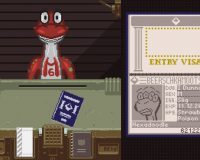

The implications of study findings for practitioners We have not confirmed the effect of our video game intervention on implicit attitude change.īased on our results, historical video games can affect short‐ and long‐term explicit attitudes. Our video game intervention affected explicit attitudes over the short term and partly over the long term. The study is the first to combine long‐term explicit and implicit attitude measurements related to games.

There are no studies dealing with the effect of historical video games on attitudes. So far, the effect of video games on implicit attitudes has not been confirmed. Video games can change short‐term explicit attitudes under certain circumstances. The research of video games' effects on short‐ and long‐term attitudes is generally limited. No studies address video games' long‐term effects on both explicit and implicit attitudes. What is currently known about the subject matter To this end, we propose the application of scaffolding that favors these objectives. Nevertheless, if we want to favor moral learning with ‘Papers, Please’, it is necessary to promote epistemic goals aimed at the explicitation of the morality that underlies the video game. Hence, although spontaneous video game use is oriented toward pragmatic goals, ‘Papers, Please’ can guide players to think about the morality of the video game.

Through Exploratory Factor Analysis, we identified three dimensions, one of them pragmatic, oriented to success in the video game, and the others aimed at epistemic aspects beyond the objectives of the video game and that delve into the moral aspects of the game events. However, Fairness/Cheating is less represented, despite the many events related to Immigrant discrimination. As for the analysis of the Moral Intuitions, results showed that the players mainly made references to Care for both Family and Immigrants and point out the Authority of the State. Results showed that only 4.94% of the reviews presented Moral Intuitions (moral content), which occurred more in the players who had played longer and had declared more Negative Emotions. To do this, we analyzed the moral content of 1,560 player reviews. For this purpose, we have investigated what types of moral discourses arise from playing ‘Papers, Please’, a video game where you adopt the role of a customs inspector in a totalitarian state who must obtain the necessary money to fund their family. Thus, we have tried to identify those objectives that go beyond the success in the video game and could favor moral learning. In particular, in this research, we set out to identify the potential of ‘Papers, Please’ to promote moral learning. “Papers, Please” and the red eagle logo are trademarks of 3909 LLC.Video games are the digital entertainment resource most in demand by young people, which has led an increasing number of education experts to study their possible benefits. Decide the fate of countless hopeful immigrants while balancing your income and family needs.Ĭopyright 2013 ©, 3909 LLC.Unique document-inspection gameplay with escalating challenges.Immerse yourself in a fictional world of spies, criminals, terrorists, secret societies, government agents and more.

Using only the documents provided by travelers and the Ministry of Admission's primitive inspect, search, and fingerprint systems you must decide who can enter Arstotzka and who will be turned away or arrested. Among the throngs of immigrants and visitors looking for work are hidden smugglers, spies, and terrorists. Your job as immigration inspector is to control the flow of people entering the Arstotzkan side of Grestin from Kolechia. The communist state of Arstotzka has just ended a 6-year war with neighboring Kolechia and reclaimed its rightful half of the border town, Grestin. An apartment will be provided for you and your family in East Grestin. Your name was pulled.įor immediate placement, report to the The Ministry of Admission at Grestin Border Checkpoint.


 0 kommentar(er)
0 kommentar(er)
